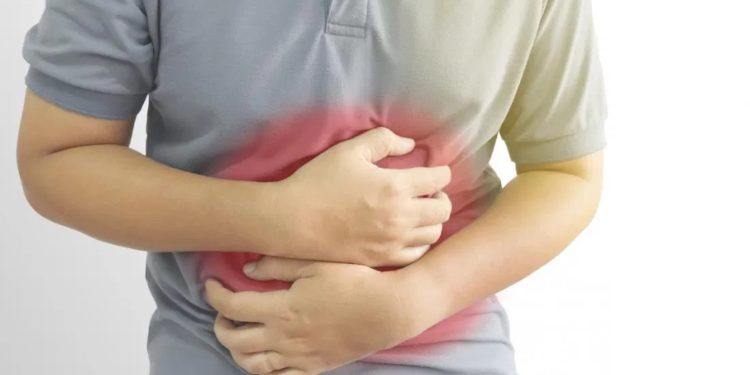Dasamoolarishtam is an Ayurvedic liquid medicine, used in the treatment of general weaknes, after delivery care of mother, cold, cough, digestive disorders etc.
Dashmoolarishtam Dosage: 12 – 24 ml. one or two times a day, usually advised after food.
If needed, equal quantity of water can be added before consumption. Can also be taken in repeated doses.
Adjuvant: Musk or Vayugulika is taken by mixing with this.
How long to use?
Based on doctor’s prescription, this medicine can be used for several months.
Dasamoolarishta Benefits:
- Indigestion, lack of taste, respiratory conditions, fistula, in diseases of Vata imbalance, vomiting, anemia, liver diseases, skin diseases, haemorrhoids, urinary calculi and other urinary tract disorders, cough, jaundice.
- It improves immunity and strength.
- It is used as a general health tonic.
- Dasamoolarishta is also used for ladies having problem with conception and pregnancy.
Classical Indications:
- Grahani – Malabsorption syndrome, IBS
- Aruchi – Anorexia
- Shwasa – respiratory diseases, wheezing, asthma
- Kasa – cough, cold
- Gulma – bloating, abdominal tumor
- Bhagandara – anal fistula
- Vatavyadhi – Vata imbalance disorders, neurological disorders
- Kshaya – tissue depletion, chronic respiratory disorders
- Chardi – vomiting
- Panduroga – anemia
- Kamala – liver disorders, jaundice
- Kushta – skin disorders
- Arsha – piles
- Meha – urinary disorders, diabetes
- Mandagni – low digestion strength
- Udara – ascites
- Sharkara – urinary gravels
- Ashmari – urinary calculi
- Mutrakrichra – difficulty in urination
- Dhatukshaya – in emaciated, lean and weak person
- Krushaanaam pushtijanana – improves nourishment in lean and weak.
- VandhyaanaaM garbhada – useful in female infertility
- Shukraprada – Improves sperm and semen quality and quantity
- Balaprada – improves immunity, strength
Dasamoolarishtam side effects: High dose may cause burning sensation, stomach disturbances.
Dashmoolarishta Ingredients:
- Bilva (Bael), – Aegle marmelos – root / stem bark – 48 grams
- Shyonaka (Oroxylum indicum) – root / stem bark – 48 grams
- Gambhari (Gmelina arborea) – root / stem bark – 48 grams
- Patala (Stereospermum suaveolens) – root / stem bark – 48 grams
- Agnimantha (Premna mucronata) – root / stem bark – 48 grams
- Shalaparni (Desmodium gangeticum) – root / whole plant – 48 grams
- Prishnaparni (Uraria picta) – root / whole plant – 48 grams
- Brihati (Solanum indicum) – root / whole plant – 48 grams
- Kantakari (Solanum xanthocarpum) – root / whole plant – 48 grams
- Gokshura (Tribulus) – Tribulus terrestris – root / whole plant – 48 grams
- Chitraka (Plumbago zeylanica) – Root – 240 grams
- Pushkaramoola (Inula racemosa) – Root – 240 grams
- Lodhra (Symplocos racemosa) – stem bark / root – 192 grams
- Guduchi (Indian tinospora) – stem – 192 grams
- Amla – Indian gooseberry – fruit – 154 grams
- Duralabha (Fagonia cretica) – whole plant – 115 grams
- Khadira (Acacia catechu) – Heart wood – 77 grams
- Bijasara (Pterocarpus marsupium) – heart wood – 77 grams
- Pathya (Terminalia chebula) – Fruit – 77 grams
- Kushta (Saussurea lappa) – Root – 19 grams
- Manjishta (Rubia cordifolia) – Root – 19 grams
- Devadaru (Cedrus deodara) – Heart wood – 19 g
- Vidanga (Embelia ribes) – Fruit – 19 grams
- Madhuka (licorice) – Root – 19 grams
- Bharngi (Clerodendrum serratum) – Root – 19 g
- Kapittha (Feronia limonia) – Fruit powder – 19 g
- Bibhitaka (Terminalia bellirica) – fruit – 19 g
- Punarnava (Boerhavia diffusa) – Root – 19 g
- Chavya (Piper retrofractum) – Stem – 19 g
- Jatamansi (Nordostachys jatamansi) – Rhizome – 19 g
- Priyangu (Callicarpa macrophylla) – Flower – 19 g
- Sariva (Hemidesmus indicus) – Root – 19 g
- Krishnajeeraka (Carum carvi) – Fruit – 19 g
- Trivrit (Operculina turpethum) – Root – 19 g
- Nirgundi (Vitex negundo) – Seed – 19 g
- Rasna (Pluchea lanceolata) – Leaf – 19 g
- Pippali (long pepper) – Fruit – 19 g
- Puga (Betel nut) – Seed – 19 g
- Shati (Hedychium spicatum) – Rhizome – 19 g
- Haridra (Turmeric) – Rhizome – 19 g
- Shatapushpa (Anethum sowa) – Fruit – 19 g
- Padmaka (Prunus cerasoides) – Stem – 19 g
- Nagakesara (Mesua ferrea) – Stamen – 19 g
- Musta (Cyperus rotundus) – Rhizome – 19 g
- Indrayava (Holarrhena antidysenterica) – seeds – 19 g
- Karkatashrungi (Pistacia integerrima) – Gall – 19 g
- Jivaka (Pueraria tuberosa) (Official substitute) – Root – 19 g
- Rishabhaka (Microstylis wallichii) – Root – 19 g
- Meda (Polygonatum cirrhifolium) – Root – 19 g
- Mahameda (Asparagus racemosus) (Official substitute) – Root – 19 g
- Kakoli and ksheerakakoli (Withania somnifera) (Official substitute) – Root – 19 g
- Rddhi & Vriddhi (Dioscorea bulbifera) (Official substitute) – Root – 19 g
- Water for decoction – 20 liters. Boiled and reduced to 5 liters.
- Draksha (Raisins) – Dried fruit – 600 grams
- Water for decoction – 2.45 liters boiled and reduced to 1.84 liters
- Honey – 307 grams
- Guda (Jaggery) – 3.8 kg
- Dhataki (Woodfordia fruticosa) – Flower – 290 g
- Kankola (Piper cubeba) – Fruit – 19 g
- Jala (Coleus vettiveroides) – Root – 19 g
- Chandana (Santalum album) – Heart wood – 19 g
- Jatiphala (Myristica fragrans) – Seed – 19 g
- Lavanga (clove) – Flower bud – 19 g
- Tvak (Cinnamon) – Stem bark – 19 g
- Ela (Cardamom) – Seed – 19 g
- Patra (Cinnamomum tamala) – Leaf 19 g
- Kataka Phala (Strychnos potatorum) – Seed – quantity sufficient.
Reference: Sharangdhara Samhita Madhyama Khanda 10/78-92, Bhaishajyaratnavali.



Comments 8